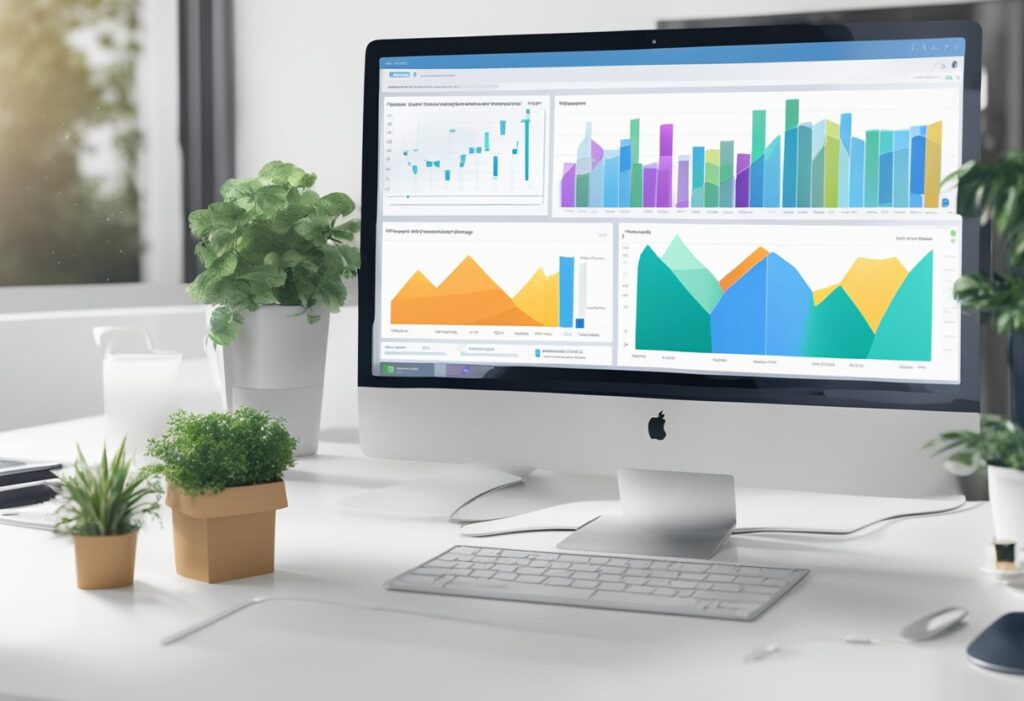Creating effective property management reports is crucial for keeping track of a property’s performance and making informed decisions. Property Managers Edmonton will always advise that a good property management report provides clear, up-to-date information on financial, leasing, inspection and operational aspects. These reports help property managers and owners assess the value of their investments by showcasing income, expenses, and overall performance.
One important type of report is the evergreen report, which is regularly updated to stay relevant. Such reports include detailed financial data, balance sheets, cash flow statements, and rent rolls. By systematically organizing and presenting this information, multi-family property managers can easily track performance trends and address potential issues promptly.
Leveraging technology can greatly enhance the efficiency and accuracy of property management reporting. Modern software automates data entry, tracks electronic payments, and handles recurring expenses, saving time and reducing errors. This allows property managers to focus on strategic planning and improving property value.
Key Takeaways
- Effective reports provide clear and updated financial and operational data.
- Regularly updated evergreen reports are essential for ongoing performance tracking.
- Technology boosts reporting efficiency and accuracy.
Fundamentals of Property Management Reporting

Creating effective property management reports involves understanding the essentials of financial data, the importance of key reports, and a clear breakdown of income and expenses. Each aspect is crucial for maintaining the financial health and performance of the properties under management.
Importance of Accurate Financial Data
Accurate financial data is the cornerstone of effective property management reporting. Property managers rely on precise numbers to make informed decisions and plan for the future.
Financial health is assessed using financial statements such as the balance sheet and performance reports. Errors or inaccuracies can lead to misleading conclusions, affecting rental income, expenses, and overall financial performance. Reliable data leads to better financial planning, investment strategies, and ensures compliance with tax regulations.
Key Reports for Effective Management
Several key reports are essential for the effective management of properties.
Income and expense statements provide a detailed view of net income, tracking rental income against operating expenses such as maintenance costs, utilities, fees, and insurance.
Cash flow statements show the inflows and outflows of cash, highlighting how cash is managed over a period.
Balance sheets give a snapshot of a property’s financial health at a specific point in time, detailing assets, liabilities, and owner equity.
These reports collectively offer a comprehensive view of financial performance and help in making informed management decisions.
Understanding Income and Expenses
Understanding income and expenses is vital for maintaining and improving property performance.
Income sources include rental income and other fees collected from tenants.
Expenses encompass a wide range, from routine maintenance costs to larger operating expenses such as insurance, property taxes, and utility bills.
An operating statement effectively categorizes these transactions, making it easier to track and manage financial performance. Monitoring these details helps property managers identify areas to cut costs and optimize operations, ensuring the property remains profitable.
Tracking these key elements ensures financial stability, aids in budgeting, and supports strategic planning, all of which are critical for sustaining the operation and profitability of managed properties.
Leveraging Technology for Reporting Efficiency

Integrating technology into property management reporting enhances operational efficiency and enables timely access to critical data. By using property management software, managers can automate report generation and ensure timely, accurate distribution to stakeholders.
Property Management Software Solutions
Property management software simplifies many tasks by centralizing data and automating routine processes. These solutions offer various features like tracking maintenance requests, managing tenant communications, and collecting rent.
For reports, software can consolidate information from different data sources. This consolidation allows for real-time metrics and insights without manual data entry. Property managers can set KPIs to monitor crucial aspects such as occupancy rates, lease renewals, and maintenance costs.
Integrating AI into these solutions further enhances analytical capabilities, enabling predictive analysis and trend identification.
Automating Report Generation and Distribution
Automation in reporting saves time and reduces human error. By setting predefined templates, property managers can ensure consistent and accurate reporting.
Software can automatically pull data at specified intervals, generating reports that provide snapshots of financial performance, occupancy rates, and maintenance activities. Automation also helps distribute reports through owner portals or email notifications, ensuring stakeholders always have access to the latest information.
Tools equipped with AI can adapt templates based on changing needs, ensuring that reports remain relevant and informative.
Ensuring Timely Access to Reports
Timely access to reports is crucial for effective decision-making. Property management software provides dashboards that offer real-time updates and quick access to important metrics. These dashboards can be customized to highlight critical KPIs.
Owners and stakeholders can access these reports anytime through secure portals. This accessibility ensures they are always informed about property performance. Additionally, automated alerts can notify managers when specific metrics fall outside predefined parameters, allowing for prompt action.
Data analytics tools embedded in software solutions can further break down and analyse data, providing deeper insights into tenant behaviour and market trends. This, in turn, helps optimize operations and improve tenant satisfaction.






